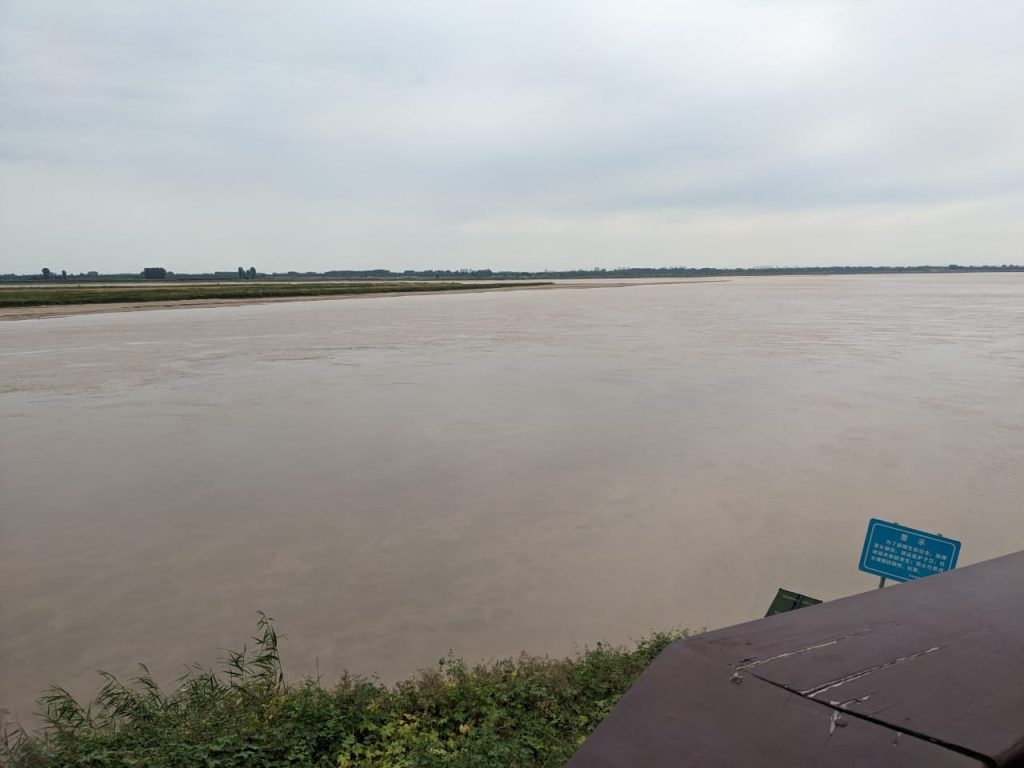During the recent visit to China for the 6th Forum on China-Africa Media Cooperation and the China-Africa, media practitioners from over 20 African countries including Uvoro Tv from Kenya had the incredible opportunity to explore two iconic landmarks along the Yellow River—the Yellow River Culture Park and Yellow River Beach Park. These visits were part of a broader cultural exchange, complementing their participation in the 6th Forum on China-Africa Media Cooperation. Both parks provided a deep dive into China’s rich historical and natural heritage, highlighting the significance of the Yellow River to Chinese civilization.
A Journey into Culture and Nature
At Yellow River Culture Park, our team was immersed in the vibrant history of one of the world’s most significant rivers. Known as the “Mother River of China,” the Yellow River is often referred to as the cradle of Chinese civilization. With over 5,400 kilometers in length, it is the second-longest river in China and the sixth-longest in the world. The park beautifully encapsulates this rich legacy, featuring exhibitions that trace the historical and cultural importance of the river, as well as its role in shaping China’s ancient agriculture and economy.
Walking through the park, our team was able to witness remarkable cultural relics and learn how the Yellow River basin was pivotal to early Chinese settlements. The park showcases both ancient and modern depictions of the river, including stunning sculptures, murals, and multimedia presentations that celebrate its history.

A Breath of Fresh Air at Yellow River Beach Park
At Yellow River Beach Park, nature took center stage. Located on the banks of the Yellow River, the park offers a serene landscape where the natural beauty of the river can be fully appreciated. Known for its picturesque views and relaxing ambiance, Yellow River Beach Park is a popular spot for both locals and tourists who want to experience the tranquility of the riverfront.
Our team enjoyed a leisurely stroll along the river’s edge, surrounded by lush greenery, expansive beaches, and the sound of the flowing water. The park offers many activities, including boat rides, fishing, and picnic areas, making it a perfect spot to unwind. The wide sandy banks are reminiscent of how the river has shaped and nourished the land for millennia.
Interesting Facts About the Yellow River
- Cradle of Civilization: The Yellow River Basin is known as the birthplace of Chinese civilization, with early agricultural societies forming around 5,000 years ago. The region was key to the development of ancient Chinese states.
- Frequent Flooding: Due to its high silt content, the river has a history of frequent flooding, which has greatly influenced Chinese engineering feats. Over the centuries, extensive dikes and canals have been built to control its unpredictable nature.
- Rich Ecosystem: The Yellow River supports a diverse range of ecosystems, particularly in its upper reaches, which are home to numerous plant and animal species.
Strengthening Cultural Bonds
The visit to both parks underscored the depth of China’s historical and natural wonders, offering valuable insights into how China’s ancient past continues to influence its present. This cultural experience is sure to inspire new, engaging content at Uvoro TV, as we continue to bring stories of international cooperation and shared heritage to our audience.
Stay tuned as we share more from this enriching trip to China!
About the Yellow River
Spanning nine provinces, the Yellow River has served as both a blessing and a challenge for China. Its vast basin was the site of early Chinese dynasties and remains a focal point for cultural and ecological research. With recent efforts to manage its waters and preserve its historical significance, the Yellow River remains a powerful symbol of China’s past and future.

